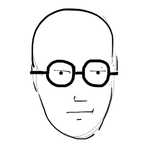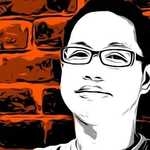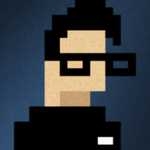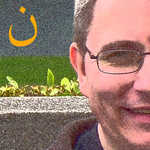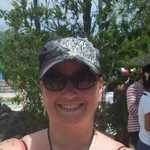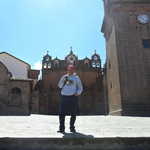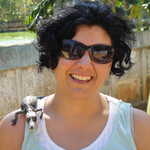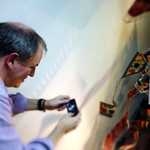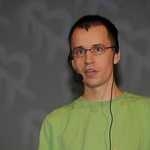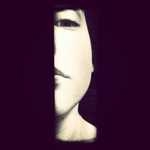When I was a kid in Oklahoma, seventy years ago, storytelling happened mainly at bedtime. And it wasn’t much associated with the idea of truth. The stories we heard were of the fairy tale and fable variety. In fact, the only stories I still remember being read were Speedy in Oz (umpteenth book in the Wonderful Wizard series) and the confabulation Little House on the Prairie, a narrative I later came to realize was a complete perversion of native truth which transformed the “horrors of white supremacist genocidal thinking and the stealing of Indigenous lands into something noble, virtuous, and absolutely beneficial to humanity.” 1 And just to put a final nail in the ‘stories as truth’ coffin, I clearly remember my Granma Chambers, (wife of Otis who was the only rumored ‘Indian’ in our family), shouting at me: “Don’t you go telling stories to me, Wade Chambers, I know you ate those cookies”
These days storytelling is seen as the center of all culture, all knowledge, all communication, indeed even science comes to us as stories. There is a lot to be said for such a seemingly immoderate view of the importance of storytelling. Ask Dr. Google.
The earliest storytelling is intermingled with the origins of language itself, but also with the beginnings of art: pictographic images on rock walls. Even now, after millennia, native peoples around the globe acknowledge modern storytelling as an art form, a mode of spirituality, an entertainment, healing practice, medium of cultural communication, the language of diplomacy, a narrative of conviction and persuasion, and a tool for the preservation and transmission of knowledge. These dimensions of storytelling have persevered in indigenous cultures over tens of thousands of years in unbroken succession.
In his book The Truth About Stories, Thomas King, a man of mixed Cherokee and European descent, says “The truth about stories is that that’s all we are”. His book, originally presented on the CBC as the prestigious Massey Lectures, is certainly nothing more than stories: personal anecdotes, family histories, historical accounts, narratives of social injustice, political diegesis, yarns, creation stories . . . all these things, intermingling, interpenetrating. Remarkable really. That’s pretty much the way Native Peoples tend to mix it up. It’s called life.
Indigenous stories are often tied closely to place. To the land. To nature. When native people tell stories they are usually laughing and joyous, even in adversity. NDN stories can be tricky and dangerous, with tricksters lurking behind every rhetorical flourish. Such stories, are often non-linear in structure, or rather both linear and non-linear. Long over-arching narrative, short jest, poetic extravagance, interleaved incident, propaganda burst, moral conjecture, nature observation, song, dance, drum roll, start over. End, middle, beginning, middle, end, beginning. Holistic. Human. True.
Why am I telling you this? Because Hi.co is a really good platform for indigenous stories in digital format. I’m not really talking so much about the misunderstood creation stories which have become the non-native cliche for native storytelling, but rather about smaller usually focused sketches (words and pictures) which can be assembled by topic, by person, or by community, to form a larger, perhaps truer understanding of some complex reality. In our Brandon University Indigenous Storytelling Class, we have a good mix of indigenous and non-indigenous students enrolled in the Native Studies Program. Take a peek at some of our stories by clicking below:
-
If you don’t believe me on this matter, read the persuasive essay by Waziyatawin Wilson, ‘Burning Down the House’ in the book Unlearning the Language of Conquest by Four Arrows (Don Trent Jacobs). ↩
Filed Under
Other moments in Aireys Inlet
-
Burning, poem, Books
Burning the Books
in Aireys Inlet, Australia -
Today's Sunrise, poem
Beginning or End?
in Aireys Inlet, Australia -
Verses for Emlyn, Grandfathers, family fun
Grandad Wade
in Aireys Inlet, Australia -
Verses for Emlyn, Roses, flowers
Beauty
in Aireys Inlet, Australia -
The Small Things, Depression
Small blessings #4: Just a touch of rose.
in Aireys Inlet, Australia -
Verses for Emlyn, birds, bird bath
Seven
in Aireys Inlet, Australia -
Atheism, Today's Sunrise
Glory
in Aireys Inlet, Australia -
Today's Sunrise, Today's Coffee, health
Morning Cuppa
in Aireys Inlet, Australia -
Verses for Emlyn, kangaroo, wildlife
Alert
in Aireys Inlet, Australia


